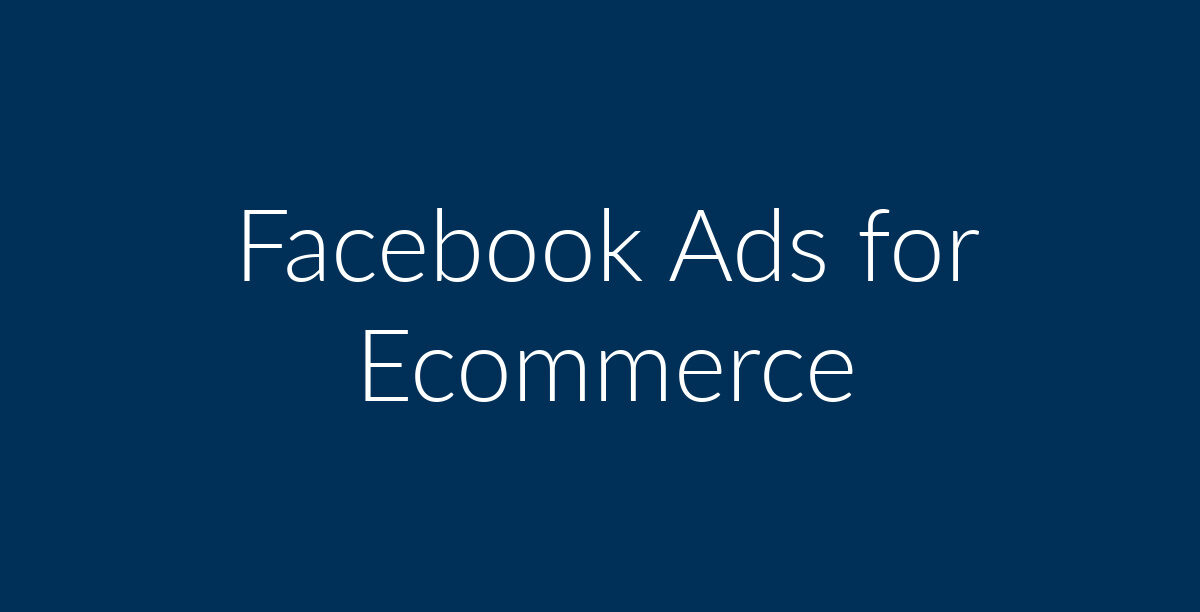Ecommerce is the epitome of the internet age, revolutionizing how we interact with businesses. Giants like Amazon and Alibaba have transformed the marketplace, making it challenging for traditional brick-and-mortar stores.
As more business shifts online, it’s essential to understand the role of social media, especially Facebook, in driving sales for your ecommerce business.
Now let’s explore how to create effective Facebook ads for your ecommerce store.
Why Facebook Ads Matter for Ecommerce
A Goldmine for Lead Generation
Facebook, with over 3.0 billion monthly active users, is a goldmine for lead generation. Many ecommerce businesses have significantly grown their customer base by leveraging Facebook ads.
For instance, Pigtails and Ponys, a hair accessory company in India, gained 70% of its clients through Facebook advertising.
Similarly, ASOS boosted its sales by displaying personalized ads. So, how can you replicate this success for your ecommerce business?
Setting Your Goals
The first step in creating Facebook ads for ecommerce is defining your goals. Facebook offers a variety of objectives, but it’s crucial to choose one that aligns with your business aims.
For ecommerce, objectives like catalog sales, brand awareness, and traffic are particularly effective.
Catalog sales allow you to showcase your products directly in the ad, brand awareness helps market your store, and traffic aims to direct potential customers to your online store.
Select one that matches your business objectives:
- Store visits
- Brand awareness
- Catalog sales
- Reach
- Traffic
- Engagement
- App installs
- Video views
- Lead generation
- Messages
- Conversions
Targeting Your Audience
Once you’ve set your goal, the next step is defining your target audience. Facebook’s Ad Set section offers detailed targeting options to help you reach the right people.
Location
Determine where your potential customers are located. Do you ship globally or only within specific countries? Ecommerce businesses often have a broad reach, unlike local businesses like cafes and restaurants.
Age
Set an appropriate age range based on your products. A typical ecommerce age range might be 18-65, but this depends on what you’re selling.
Gender
If your products are gender-specific, tailor your ads accordingly. For instance, if you sell female lingerie, target women.
Interests, Demographics, and Behaviors
Leverage Facebook’s vast data to further refine your audience. For example, if you sell science fiction books, target users interested in that genre.
The Power of Remarketing
Remarketing targets people who have previously shown interest in your products. This is particularly effective for ecommerce as it allows you to follow up with potential customers across the web.
Custom Audiences
Facebook allows you to create custom audiences for remarketing. When someone visits your website, they are tagged with a code. Later, they see relevant ads on Facebook based on their previous interactions with your site.
Setting Up Facebook Pixel
For remarketing to work, you need to install Facebook Pixel on all your website pages. This tool tracks user activity, enabling you to target these users with tailored ads. Your strategy should include building an audience through SEO and then using Facebook ads to retarget those visitors.
Benefits of Remarketing
- Remind customers of products they viewed
- Offer discounts on these products
- Promote related items
- Target users on mobile devices
Facebook Ads Marketing Plans
Harnessing the power of Facebook ads can significantly boost your ecommerce sales. By setting clear goals, targeting the right audience, and leveraging remarketing, you can create compelling ad campaigns that drive results.
For personalized support and expert guidance, reach out to us at Planet Marketing. Let’s create a digital strategy that takes your ecommerce business to new heights!
Start by clicking the button below:

